Combating Corruption – The Role of Catholic Education: Speaking to Bishop Bowers pupils & students
This is one of my nightmares in public speaking, addressing class 4 pupils to JHS 3 students. As I entered the hall and saw them sit, my thoughts were how was I going to break the topic down for these kids to understand. This event was part of the Catholic Education Week celebration and I was invited as a last-minute replacement for some public officer who was invited to address the children but chickened out at the last minute.
But trust me I really enjoyed this talk, the kids are very bright and they really know what time it is and as we say in Ghana, they know what’s up. Among the audience was my son Edem, niece Aseye and my darling sister Nerissa. Another surprise for me was that all but one of the questions came from the JSH students, the rest were from the primary school pupils. They asked very intelligent questions, lets no one belittle the intelligence and the knowledge of our young ones. Below is the full text of the speech as it was written before meeting them but was delivered differently and interactively.
It is a great pleasure to be here with you today to discuss this topic that is critical to our survival as a country. I am happy that our theme is positive in its orientation. What is the topic, who can tell us? Combating Corruption – The Role of Catholic Education. So, we are not here to just come complain about a canker that is eating us up like a lot of us Ghanaians do, but we are here to try and find a solution to the problem
We are gathered to kick start a very important initiative in the delicate field of the fight against corruption. So, in all of this, I want you to think and find out how you and I through the Catholic Education you are receiving today can combat corruption in Ghana.
Let’s start with a quotation by a famous Ghanaian.
“Bribery (Corruption) is unethical wherever it occurs, because it is unjust, unfair, and corrupting whether it is legal or not. Everybody in a country may accept bribery as a way of life, just as “everybody” may accept vengeance killings, abuse of women and child slavery. Bribery (Corruption) still creates conflicts of interest, distorts policy and impedes justice. It favours the rich and powerful over the poor and weak. It harms society. It is wrong.” – Kofi Annan and the U.N.’s Culture of Corruption (3/5/2005)
What is Corruption?
To begin, let’s consider what the word of God says in Ephesians 5:11. It says: “Take no part in the unfruitful works of darkness, but instead expose them.”-
In general, corruption is defined as the misuse of entrusted public power or function for private benefit. But it is not limited to this definition alone.
- When you cheat during an examination, it is also a corrupt practice.
- When you go for apo in exams
- When you do not pass & your parents pay a bribe for you to be admitted into an SHS you do not deserve.
- If you pay money to be voted for in school elections.
- Cheating during sports, using players who are not in your school to play for you during Inter-School Sports
- As a prefect, you overlook the wrong thing that some students do because they are your friend or you punish those who are innocent because you do not like them.
- When you see your friend engage in anything that breaks school’s rules and regulations and you don’t report such friend but you cover up for him or her, know that you are practising corruption.
- Give me some examples of corrupt practices.
Corruption is one of the main problems faced by many countries, it takes many forms. It is often thought of as a problem that mostly affects developing countries. But while the harm it does is magnified in poorer nations, like Ghana, corruption does not concern itself with national boundaries – it can be unearthed anywhere.
According to the United Nations, corruption undermines democratic institutions, slows down economic development and makes governments less stable; in addition, the World Bank has described corruption as one of the main obstacles to economic development.
It takes two parties to pay a bribe or receive a kickback. The Bible is absolutely clear about how Christians must react to such things when exposed to them (at school, home, work, private, wherever). We are to have “no part” or take no part in it, meaning not even a little, and tiny part.
Having “no part” means avoiding the “works of darkness” altogether, and that means avoiding those who do them. In fact, we’re told to expose them, because whoever breaks man’s laws, also breaks God’s laws (Rom 13:1-5), and if you break God’s laws, in time, they’ll break you (and me) too.
What are some of the negative effects of corruption in society?
- Students lazy and cheats from learning & robbing of skills for the future.
- Corruption hurts education – Students in countries with less corruption have higher test scores
- Corruption, bribery, theft and tax evasion, and other illicit financial flows cost developing countries $1.26 trillion per year. That’s roughly the combined size of the economies of Switzerland, South Africa and Belgium, and enough money to lift the 1.4 billion people who get by on less than $1.25 a day above the poverty threshold and keep them there for at least six years.
- As much as $132 billion is lost to corruption every year throughout the European Union’s member states, according to the EU Commissioner for Home Affairs.
- The Deputy CHRAJ Commissioner Mr Richard Quayson says Ghana loses GH¢13.5 billion every year through corruption. (3rd October 2018)
- Corruption obstructs free competition, particularly in smaller companies — there is little competition, which lowers the quality of goods and services, too.
- State revenues are diminished
- Foreign investors have less confidence in the government and, therefore, their contribution to the economy drops.
- Personal well-being is increasingly considered more important than public welfare, the latter being almost ignored
- Politicians, civil servants and individuals begin to abuse their position in order to create personal well-being.
How do you & I fight corruption in Ghana?
Consider this …
Many people tend to think of today’s youth as the leaders of tomorrow. But Scripture never places us in such a category. It never instructs us to wait until we are more mature or knowledgeable or skilled before we begin to take God’s Word seriously and consider what plans and purposes the Lord has for our lives. According to God’s Word, we are to be leaders even today who earnestly desire to honour and serve our Lord in all our thoughts and actions. Note there are many examples of young people who were leaders in the Catholic Church, the Bible and Traditions of the Church teaches us that. From David was a young man and took on Goliath, Martyrs of Uganda, with St. Kizito being the youngest – 14 years[1].
Paul told Timothy, a younger man in the faith; “Let no man despise thy youth; but be thou an example of the believers, in word, in conversation, in charity, in spirit, in faith, in purity” (1 Tim. 4:12). God specifically commands us, as young people, to be leaders—to lead by example. We are to understand God’s instructions to us and let the world watch us grow in our spiritual walk with the Lord.
As a young person myself, I am burdened for today’s youth who must not only strive to live exemplary lives right now (that is, a life that is an example for others to follow), but who will one day attempt to serve as faithful leaders within the body of Christ, the church. And that is why you must eschew corruption.
Catholic education teaches that God is present and active in our lives and in the world. The Catholic education philosophy reveals a concern for an education that combines sound knowledge and skills with an overall personal development rooted in Christian values. As a staunch Catholic myself, I am cognizant of the principles of Catholic education which teaches us to recognize the “footprints of God” in our daily experiences, especially in the midst of life’s challenges. This helps you develop a sense of “Sacramental Awareness.” You see the signs of God’s love around you and become instruments of God’s grace in your own communities, and the world.
Catholic schools promote self-discipline through clarity of moral vision that is based on the Gospel. And I know for a fact that as students, you are challenged to be Christ-like in word and action. Therefore, I will admonish you to examine your choices and actions in light of the Ten Commandments and the Gospel law of love. The theological foundation for ethical behaviour that you are being taught here at Bishop Bowers is in the right direction. In line with that, I expect you to act and make choices that are in keeping with this dignity.
I know that many adults do not always provide the right examples for us to follow. Some are downright hypocritical. Others do not even seem to care what God’s Word has to say at all. Others may truly desire to follow Christ but find themselves more interested in what some individual has to say or what some program has to offer rather than what God’s Word teaches. Today, as many older believers tend to disregard the teaching of God’s Word in order to be accepted by others, we who are younger are witnessing this tragic compromise, this disregard for Biblical truth and the teachings of the Church.
Often, many of our peers (or maybe we ourselves) are following in the footsteps of our errant elders and copying their unscriptural attitudes. Oftentimes, we feel as though we should join a “cooler,” more “alive” group. Maybe we feel that we should live like the world, act like the world, talk like the world and dress like the world in order to feel accepted and belonged. It is through these scenarios that often lead many to engage in corrupt practices. Be satisfied with who you are and what you have while you strive for excellence and a better you.
Never harbour the thought of corruption. Always be mindful of the training that you are receiving here and strive to uphold the Catholic education values and principle.
The Word of God is not silent concerning the conduct of young people and your role in society. I believe that as young people today, we must seriously consider what God’s Word has to say to us. Are we measuring up to what God wants us to be? Are we just following the crowd, or do we stand out as those who desire to be faithful and holy despite the hypocrisy and compromise all around us on the part of both adults and other young people?
To conclude, I would like to say that reducing the level of corruption is a hard and long-term process. Democratic countries have taken more and more political and public initiatives to combat it. To this end, be mindful that excellence is a response to God’s blessings. Academic excellence is not a gospel value in and of itself. The Sermon on the Mount doesn’t say “Blessed are you who get all A’s.” Education must have an altruistic orientation. Students learn so as to help others, and make a difference in the world around them. Therefore, the Catholic education that you are receiving been entrusted with the fullness of faith and have been charged with the mission of evangelization. Go out into the world and share the Catholic tradition and philosophy that you have received, as future doctors, lawyers, policemen, firemen, businessmen and women, teachers, priests and religious; as Catholic school graduates. Make a difference and together we can combat corruption in Ghana.
I recommend to all of you and to the Catholic Education Unit 15 great ideas from Transparency International’s youth anti-corruption tool kit. To combat corruption
- Follow the money – Governments have vast sums of public money to spend and this can pose a serious corruption risk. By keeping tabs on government expenditure, you can help shed light on how your country’s taxes are being spent and expose any abuses
- Citizens report card – Most people have an opinion of their government or the services it provides, but how often do they take the time to write down their views? You can help by collecting citizen report cards that provide feedback on public services by the people who use them. An individual card might not seem meaningful in itself, but a collection of hundreds or thousands of completed cards can generate new perspectives on government performance – which can then be shared with media and used by the public to bring about change. So as Bishop Bowers students we can collect our cards and share them with the media every year.
- Tech Solutions – You are tech-savvy, you can help communities document cases of corruption by developing reporting platforms on the web or through mobile apps. Social media, in particular, it is an effective way to address corruption in real-time. BB Corruption Watch Platform – to report real time corruption. Be truthful
- Comics, Cartoons, Skits & Animations – Comics are a powerful way of raising awareness about anti-corruption. Through a combination of images and text, comics can also help spark debate – and they are easy to produce. All you need is a pen and paper or an app.
- Theatre & Drama – You can get creative by taking your anti-corruption drive on stage. Music, drama, poetry or dance can be used to show citizens how to combat negative societal forces – like corruption – as well as give ideas about how to improve your own community
- Board Games – Games are a valuable and fun form of education – even for serious topics like corruption. They develop knowledge, attitudes and values, and can be highly effective in encouraging teamwork and collective action.
- Sports – Do not cheat during sports, set examples yourself. What’s your favourite sport? From running against corruption to scoring a goal for transparency, you can raise your community’s anti-corruption awareness through any sport you want.
- School Groups & Societies – Youth groups share their disapproval of corruption and are found at local and national levels. Different groups have different goals, but they have one thing in common: a willingness to talk openly about their opposition to corruption and raise awareness about its adverse effects on society. These groups can be formed to take part in a one-off event, around a single issue – stopping bribery for grades in school. All groups in Bishop Bowers should have fighting corruption as a core aim
- Integrity Camps :- Fighting corruption doesn’t have to be serious business. With integrity camps you can get friends and peers together to take on corruption. The Sisters schools could organize integrity camps during the long vacations for students.
- Zero Bribes – The “zero currency” note is a visual aid that encourages people to say “no” to corrupt officials who demand a bribe and to expose where and when bribes are demanded. The concept originated in India where it was known as the “zero rupee”movement and has proved to be a formidable tactic in fighting corruption. Here’s how it works: when asked for a bribe, you “pay” with a bill that resembles real currency but is actually fake paper money that includes anti-corruption messages.
- Protest – Protest events are a way for citizens and groups to come together in public to show large scale supportfor or opposition to a particular issue. Protests, marches, demonstrations and rallies can be a powerful tool for anti-corruption campaigners. The Catholic Schools in Ghana could organize a Jesus March to push the anti-corruption agenda. Note corruption is not only about politicians or some big man anywhere. It is about you and I. Once we say we would stop, we start combating it.
- Petition:- A petition is a collection of signatures from people supporting your cause. That petition is then presented to decision makers – like government or education officials – that have the power to create the change you want. As Bishop Bowers we could all sign a petition and present it to our Assembly against all forms of corruption we capture on our citizen cards.
- Election Pledges :- The 2020 Elections are on us, Politicians would be running for office – but they shouldn’t be able to hide. During the lead-up to elections, candidates are in the spotlight and this is a good time to hold them accountablefor their campaigning and election promises. You can ask your Parliamentary candidates to sign a pledge against corruption or agree to take specific steps to stop corruption. They can, for example, pledge not to buy or sell votes during the election, a very common form of corruption.
- Crowd Sourcing Election Monitoring:- Text. E-mail. From accessing your mobile phone to surfing the web on your computer, it’s never been easier or quicker to monitor elections in real-time. Through online crowdsourcing you can let the world know of voting irregularities in your country with just a few clicks. Some of the information can even be plotted onto an interactive map online, allowing you also to see what others in your community are reporting
- It starts from me: The most important of all is starting with yourself and say I would not be corrupt. I would not be part of any corruption. I would educate my friends & family not to be corrupt. I would let me Catholic Education count. I can make a difference, I matter.
To you teachers and administrators, I say ‘your efforts would not been in vain’. You make impact in the lives of these students, teach them by example and also say no to corruption, do not corrupt and do not be corrupted. Thank you very much.
To us parents & guardians, I say ‘Charity begins at home, let’s set the right examples and let’s teach our children that live have consequences. Do not buy undeserved favours for your kids and let our lives be the best teachers for our children
Thank you all. God Bless Our Homeland Ghana
Tswa Omanye Abla Wo
[1] The youngest martyr slain by the King Mwanga II of Buganda. He was baptized on 25/26 May 1886, by Charles Lwanga (the leader of Uganda’s Christian community) at Munyonyo, burned alive on 3 June 1886 in Namugongo. He was canonized on 18 October 1964 by Pope Paul VI at Rome.
This post has already been read 1626 times!

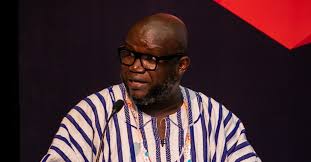
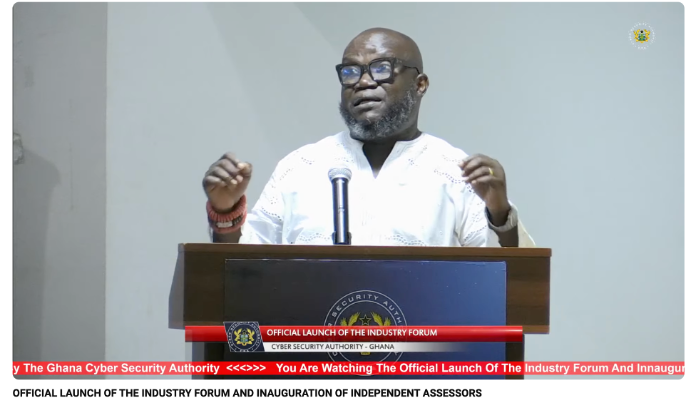
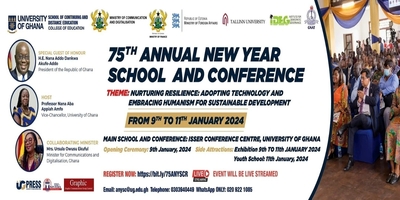

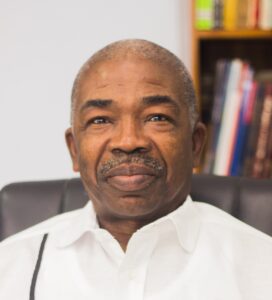
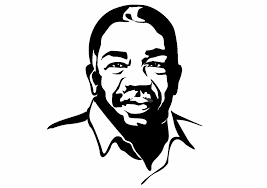
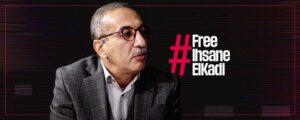
Post Comment